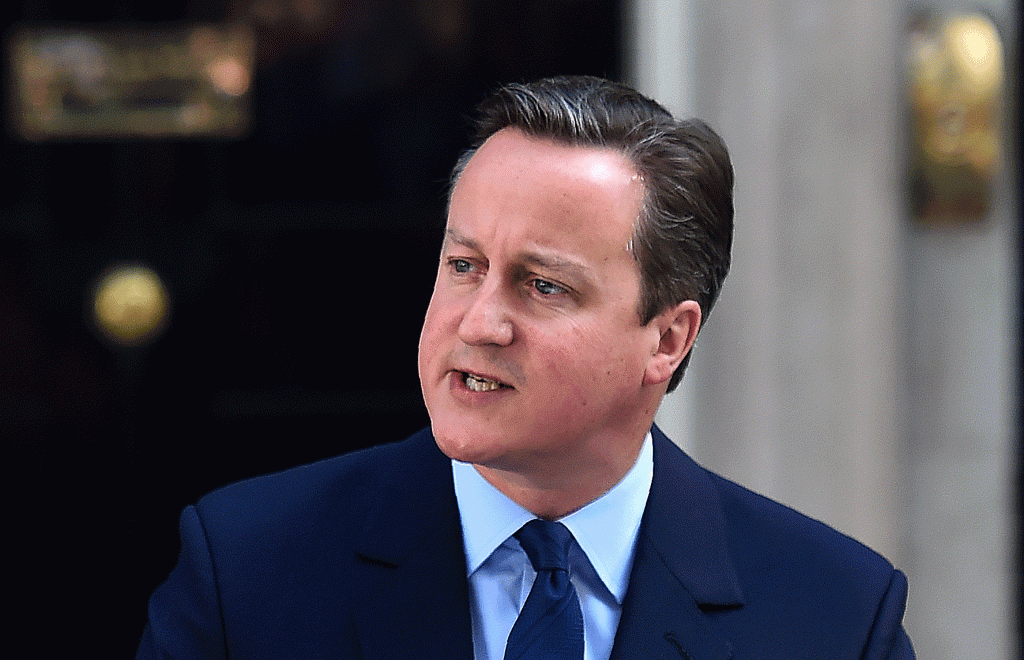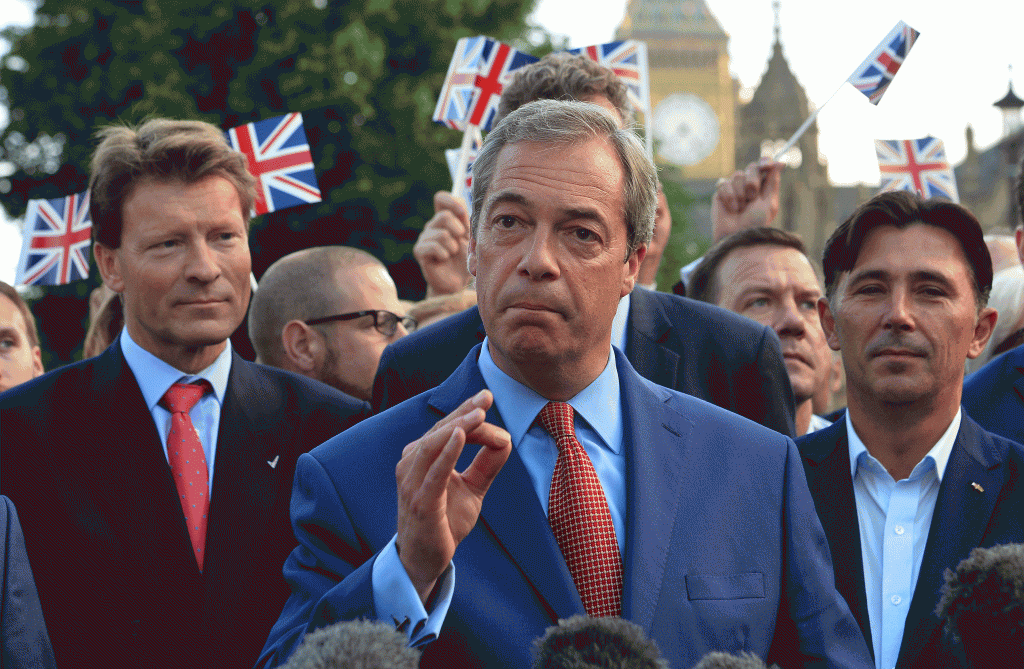A Vote in Haste? Britain after Brexit
By Mahir Ali | Newsbeat International | Published 8 years ago
Hardly anyone expected Britain to leave the European Union (EU) in the June 23 referendum. Even those who were advocating for it assumed a majority of the electorate, albeit possibly a small one, would vote to stay in. Ultimately, it didn’t, by almost 52 per cent to 48, and within hours Prime Minister David Cameron declared his intention to resign.
It was not just Cameron who was advocating a Remain vote, though. Powerful European figures waded into the debate, as did US President Barack Obama, International Monetary Fund chief Christine Lagarde and even the head of Nato, who suggested that the war against terrorism would be severely compromised by Britain’s exit from the EU. It is hard to imagine how, given that Britain would remain a member of Nato regardless of its EU membership. But then, incredibly tall claims were the order of the day in an over-the-top campaign characterised by irresponsible rhetoric and the profoundly tragic demise of Labour Party MP Jo Cox at the hands of a nationalist fanatic.
The EU, meanwhile, is petrified, not because Britain’s exit on its own spells doom for the European project, but because other members may well be persuaded to follow suit, leading to the possible dismantlement of an arrangement some of whose worst aspects have lately been demonstrated in Brussels’ approach to the economic crisis in Greece.
Just last year, the Greeks elected a government headed by the Syriza coalition, which had vowed to reverse the austerity measures introduced by its predecessors at the EU’s behest. Brussels said no. The government in Athens entered into negotiations. It wasn’t exactly looking for a radical reversal, but merely for a bunch of concessions that would reduce the burden of the policies on the worst-off segments of society.
Brussels resisted. The Greek government called a referendum to judge whether the EU’s demands were acceptable to the public. The government called for a no vote but actually expected a popular nod as a way out of its dilemma. The response was a resounding no. The troubled prime minister, Alexis Tsipras, effectively agreed right afterwards to whatever the EU was demanding, in the process dumping his outspoken finance minister, Yanis Varoufakis, and staving off the likelihood of a Grexit.
Varoufakis has subsequently been striving for a Europe-wide movement aimed, in part, at progressive reform of the EU. That may not be a completely hopeless ideal in the long run, but would entail root-and-branch overhaul of an organisation formally wedded to neoliberal capitalism. And it is difficult, at least for the moment, to see where the impetus for that would emerge from, given that apart from Greece and Spain, political challenges to the EU generally emanate from far-right parties that have lately been broadening their mass appeal pretty much across the continent, and in some cases — Hungary and Poland, for instance — are already in power. Marine Le Pen of France’s Front National was among the most vociferous continental supporters of Brexit and overjoyed by the referendum result.
Meanwhile, most of Britain’s Remain campaigners were also keen to emphasise the prospect of reforming the EU from within rather than claiming that the set-up in Brussels is as good as it gets. They included a segment of the ruling Conservative Party, much of the opposition Labour Party, the Scottish National Party (SNP) and the Greens. The Leave campaign too was led by prominent Tories, including former London Mayor Boris Johnson and Justice Secretary Michael Gove, alongside the UK Independence Party’s Nigel Farage. This created the general impression of an intra-party Conservative stoush, with ex-Eton and Oxbridge types striving for primacy in a national debate conducted largely via overblown rhetoric involving immigration and the consequent pressures on jobs, housing and services.
It must have been tempting for the Labour Party to watch from the sidelines as the Tories tore themselves apart, and although opposition leader Jeremy Corbyn did make a bit of an effort in the final week of the campaign to add his voice to the Remain case, his lack of enthusiasm was palpable. It is perfectly possible that his political instincts were more aligned with Leave — albeit for rather different reasons than those emphasised by Farage and Johnson — but he realised that coming out as a Brexiteer would seriously damage party unity, given that the vast majority of Labour MPs favoured staying in the EU.
Corbyn’s leadership now faces a fresh challenge from Labour parliamentarians questioning the wisdom of his reluctance to passionately participate in the Remain campaign, but there was no immediate indication that the dismay extends to ordinary party members. Cameron, on the other hand, may have to make way for a successor somewhat sooner than the three-month period he had in mind when he made his concession speech, with the EU indicating it would rather not wait for three months to launch Brexit negotiations.
It is likely to be a complex process that is expected to take two years or so, with plenty of unknowns in the mix given that this is the first time the EU has had to deal with a predicament of this nature. The temptation in Brussels will be to punish Britain for its audacity and to make the divorce proceedings as painful as possible in order to deter other member nations from going down a similar path. But such a strategy could backfire by vindicating and reinforcing negative impressions of the EU.
Britain’s relationship with Europe has been fraught for decades. Throughout the 1960s, its overtures for membership of what was then known as the European Economic Community were regularly thwarted by French President General Charles de Gaulle’s uncompromising veto. It was finally permitted to join in 1972, and a referendum in 1975 gave its membership the popular imprimatur it had hitherto lacked by a substantial margin. By the 1980s, though, an exit from the EEC featured as a promise in Labour’s election manifestoes. It had changed its mind by the time it came into power under Tony Blair, but by then Conservative enthusiasm for the project had substantially waned as the EU began to acquire the trappings of a superstate.
A European common market continues to make sense on several levels, and a case could no doubt be made for ceding a degree of national sovereignty in the wider regional interest. How much, though, remains an unsettled question, and the relative dearth of democracy and accountability in the EU’s decision-making mechanisms have provided grounds for growing concern.
There is a widespread impression that the union has played a key role in broadly maintaining peace in Europe since the Second World War, and this aspect cannot lightly be dismissed, even though there is no way of proving the reverse. At the same time there is the impression that the EU has expanded too rapidly, bringing into its fold widely varying economies, inviting them into the eurozone whereby the mechanism of devaluation is no longer available when the need arises, and offering huge loans on easy terms that, as in the case of Greece, can lead to mounting debts that some nations are unable to pay back. That, in turn, precipitates so-called austerity measures that tend to be particularly harsh on the most vulnerable segments of society.
Britain, by and large, did not fall into this category: it opted out of the single currency as well as the Schengen system of visa-free travel, and the austerity it has lately experienced sprang more from Downing Street and Whitehall than from Brussels. The Leave campaign focused to a considerable extent on EU rules that have drawn about three million people, mostly from eastern Europe, to live and work in Britain. For obvious reasons, the largest manifestation of this phenomenon is to be found in London — which voted overwhelmingly to remain in the EU.
It was among the relatively few parts of England to do so, whereas the whole of Scotland and Northern Ireland also opposed a Brexit. Scotland’s first minister, SNP leader Nicola Sturgeon, has predictably indicated her party would seek a fresh referendum on Scottish independence. Were that to occur, there’s a reasonably strong chance it would succeed.
In the event, what remains of the country could face an entrenched Tory majority for the foreseeable future, given that Labour has traditionally relied for victory on strong showings in Scotland.
The more immediate question is who will replace Cameron at the helm of the Conservative Party. Boris Johnson is more than likely to be a candidate, and may well succeed, even though he tends to be viewed — not entirely without justification — as the British equivalent of Donald Trump. There will, inevitably, be competitors. But given the gravity of what the electorate did on June 23, an early election — and a possible change of government, not just prime minister — should not be ruled out.
As for the economic consequences of Brexit, chances are they will not match the wilder prognostications of sudden doom and long-term despair that were bandied about with abandon by some of the Remain campaigners and their international allies, notwithstanding the pound’s precipitous plunge, alongside various international markets, on the morning after. And there is certainly cause to suspect that broad sections of the electorate did not take kindly to being hectored by distrusted establishment figures from home and abroad.
There could, of course, be cause to regret at leisure what may have been decided in haste, amid considerable confusion and ignorance, compounded by a barrage of motivated misinformation. Reports that a large number of Britons were busy googling “EU” on the day the result was announced point to popular uncertainty about precisely what their nation has opted to leave. Sober debates about the pros and cons of membership would have served an educational purpose, and possibly delivered a different result. But we live in the era of catchy soundbites and screaming headlines, and much of the tabloid press remained in EU-bashing mode throughout the campaign.
What comes next won’t necessarily be disastrous for Britain, although it could tilt that way. However, the lessons the EU learns or chooses to ignore from this vote of no confidence will prove instrumental in shaping its future.
Mahir Ali is an Australia-based journalist. He writes regularly for several Pakistani publications, including Newsline.





